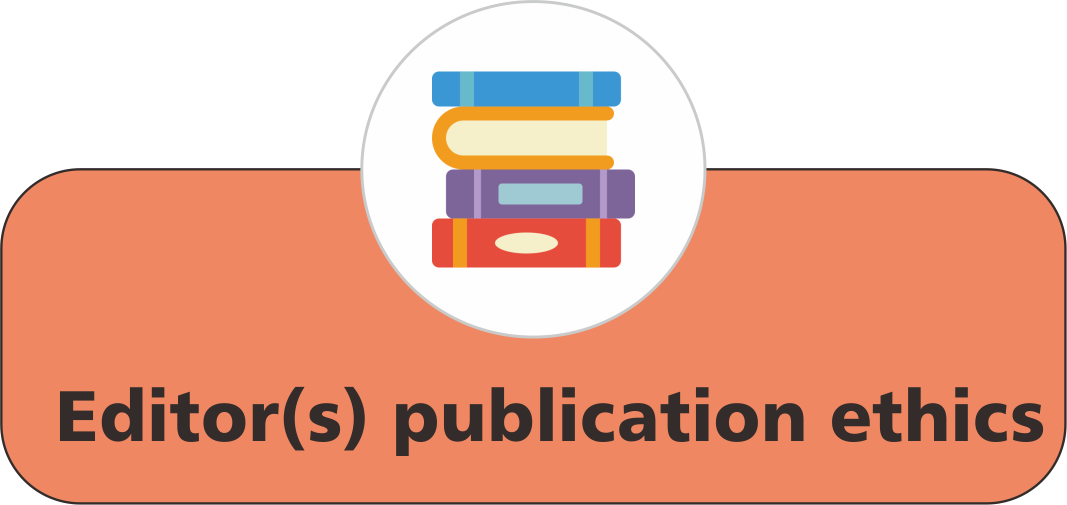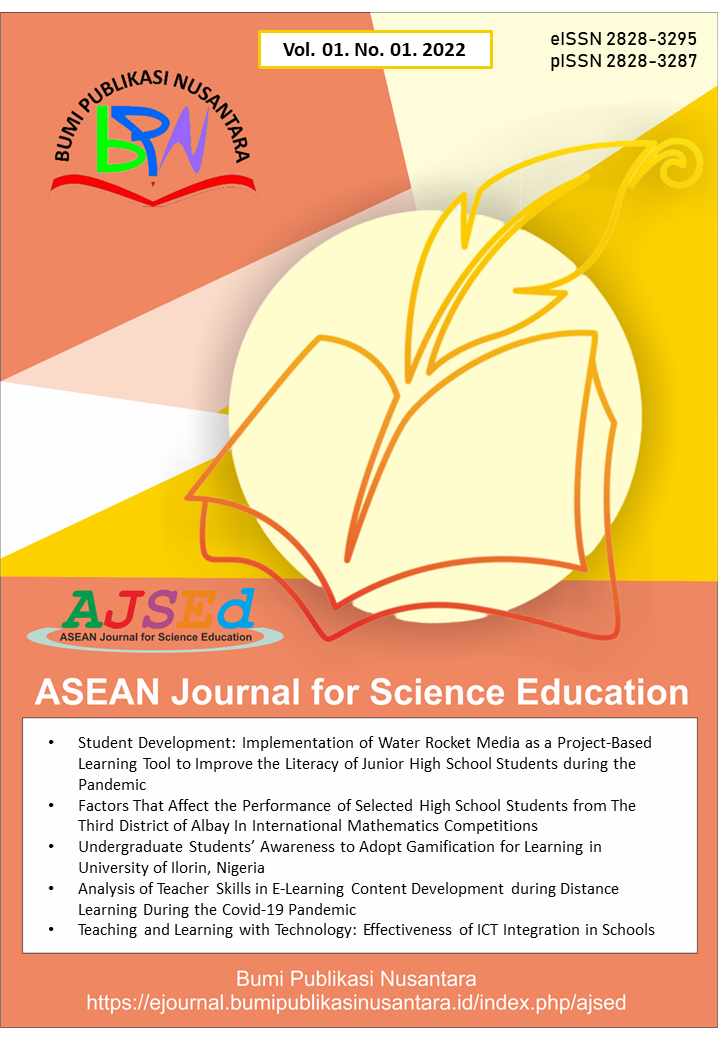Can the Inquiry Learning Model Improve Students' System Thinking Skills?
 ), Tri Wahyu Agustina(2), Maratus Solikha(3),
), Tri Wahyu Agustina(2), Maratus Solikha(3),
(1) UIN Sunan Gunung Djati Bandung
(2) UIN Sunan Gunung Djati Bandung
(3) UIN Sunan Gunung Djati Bandung
 Corresponding Author
Corresponding Author
Abstract
Keywords
References
Alberida, H., and Sumarmin, R. (2016). Pengembangan Compact Disc (CD) interaktif materi sistem ekskresi pada manusia untuk siswa SMA. Jurnal Biologi dan Pendidikan Biologi, 2(1), 102-113.
Fuad, N.M. (2017). Development of middle school science learning tools with the differentiated science inquiry (DSI) model combined with a mind map. Journal of Learning Innovation, 3(1), 6–14.
Handriani, L. S., Harjono, A., and Doyan, A. (2015). The effect of structured inquiry learning model with scientific approach on critical thinking ability and physics learning outcomes of students. Journal of Physics and Technology Education, 1(3), 210-220.
Kuhlthau, C. (2010). Guided inquiry: School libraries in the 21st century. School Libraries Worldwide, 16(1), 1-12.
Nuraeni, R., and Himatul, A. (2020). Profil kemampuan berpikir sistem siswa kelas XI SMA pada materi sistem pernapasan. Pedagogi Hayati, 4(1), 1-9.
Pramudyawan, M. T. S., Doyan, A., and 'Ardhuha, J. (2020). The effect of the guided inquiry learning model aided by the work and energy experiment tool kit on students' mastery. Physics Concepts. Science Education Research Journal, 6(1), 40–44.
Sari, A. R., Surbakti, A., Hasnunidah Biology Education, N., Teacher Training and Education, F., Lampung, U., Soemantri Brojonegoro No, J., and Lampung, B. (2020). Comparison of the effect of learning models between guided inquiry and modified free inquiry on science process skills. Bioterdidik Journal, 8(2), 1– 10.
Setianingrum, R. (2022). Kerangka kerja berpikir sistem menggunakan ilmu pengetahuan alam sebagai pengetahuan konten sistem kompleks. Biocaster: Jurnal Kajian Biologi, 2(4), 215-224.
Sulistiyono, S. (2020). Efektivitas model pembelajaran inkuiri terbimbing terhadap keterampilan proses sains dan pemahaman konsep fisika siswa ma riyadhus solihin. Jurnal Pendidikan Fisika Undiksha, 10(2), 61-73.
Tresnawati, D., Fatimah, D. D. S., and Rayahu, S. (2019, December). The introduction of solar system using augmented reality technology. Journal of Physics: Conference Series, 1402 (7), 077003.
Tripto, J., Assaraf, O. B. Z., and Amit, M. (2013). Mapping what they know: Concept maps as an effective tool for assessing students’ systems thinking. American Journal of Operations Research, 3(1), 245–258.
Article Metrics
Abstract View : 1086 times
: 1086 times Download : 747 times
Download : 747 times
Refbacks
- There are currently no refbacks.
Copyright (c) 2023 Bumi Publikasi Nusantara

This work is licensed under a Creative Commons Attribution-ShareAlike 4.0 International License.







